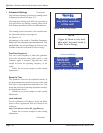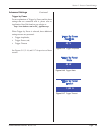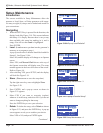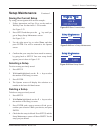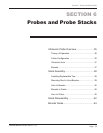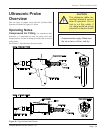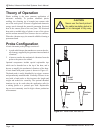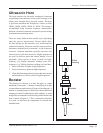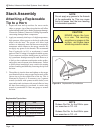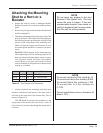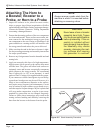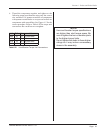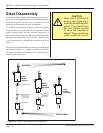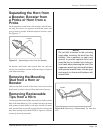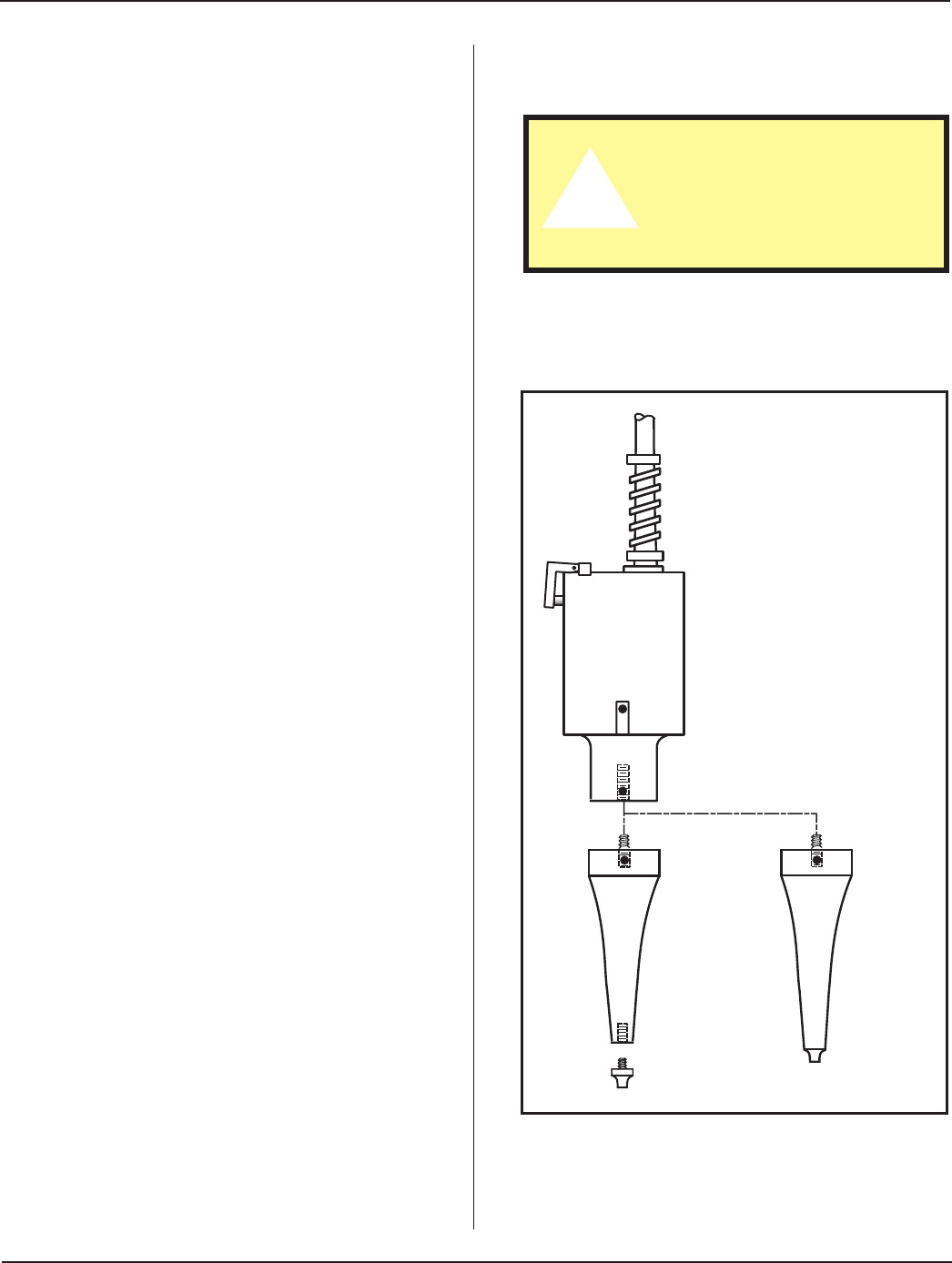
Page 36
iQ Series, Ultrasonic Hand Held Systems User’s Manual
Dukane Manual Part No. 403-577-01
Theory of Operation
Plastic welding is the most common application of
ultrasonic assembly. To perform ultrasonic plastic
welding, the vibrating tip is brought into contact with
one of the work pieces. Pressure is applied and ultrasonic
energy travels through the material generating frictional
heat at the contact point of the two parts. The frictional
heat melts a molded ridge of plastic on one of the pieces
and the molten material ows between the two surfaces.
When the vibration stops, the material solidies forming a
permanent bond.
Probe Conguration
A basic ultrasonic probe package consists of:
1. A probe which houses the transducer to convert the elec-
trical energy supplied by the generator into mechanical
vibrations.
2. A horn to transfer the mechanical vibrations from the
probe to the parts to be welded.
Optional components include special replaceable tips
which can be threaded on to the tip of the horn, and a
booster to amplify the mechanical vibrations of the horn.
A basic hand–held probe system is shown in Figure 6-2.
The hand probe is easily identied by its trigger actuator
and permanently attached cable. Normally a booster is not
used with a hand probe as this increases the length and
weight and reduces its versatility. The optional threaded
titanium tip can be used when the application calls for
a staking prole or a pointed spot weld. Replaceable
tips are not commonly used in high–volume production
environments.
Standard
Horn
Hand
Probe
Tip
Custom
Horn
Figure 6–2 Hand Probe, Horn and Tip
CAUTION
Never use the hand probe if
the cable insulating jacket is
cut or damaged in any way.



